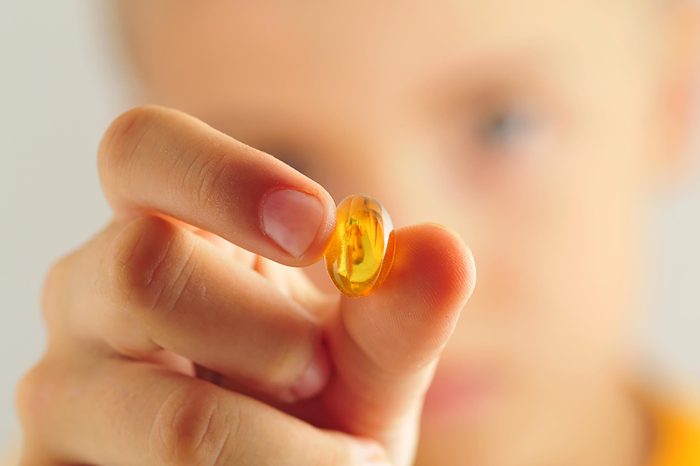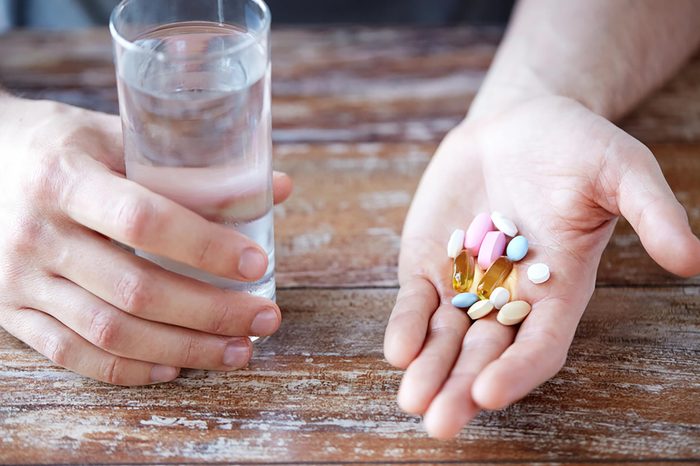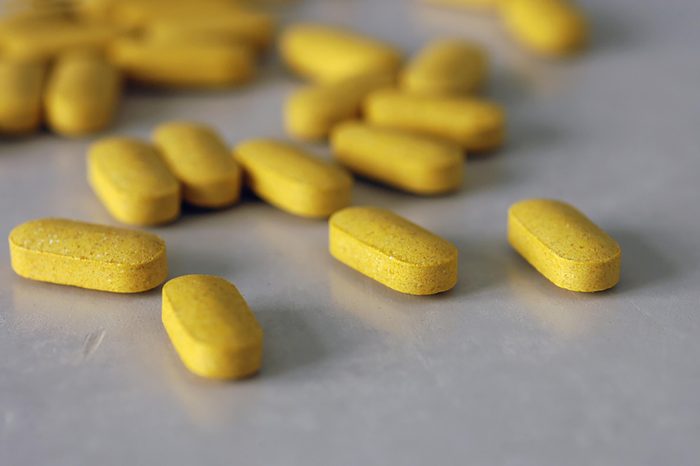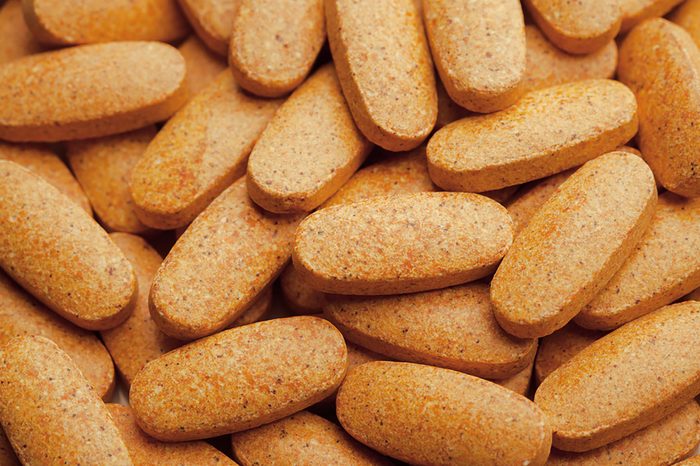Supplements you can skip
Information about vitamins can be confusing. There are vitamins and supplements that doctors take daily, but there are also some reasons why certain vitamins could make you feel worse. For women, doctors explain why it’s probably unnecessary to waste your time or money on the following supplements.

Calcium
Women are constantly being told that they need to consume more calcium. But if you already include ample dairy in your diet, you likely don’t need a calcium supplement. In fact, popping a pill along with all the milk and yogurt you’re already eating could be dangerous, cautions Tasneem Bhatia, MD, integrative medicine expert and founder of CentrespringMD. “Getting 400 to 600 milligrams of calcium daily, or about what you’d find in a cup of 1 percent milk and a 6-ounce yogurt, can strengthen bones and improve sleep. However, consuming more than 1,200 milligrams per day can increase heart attack risk in postmenopausal women.” Popping too many calcium supplements may also cause hypercalcemia, a condition that can weaken bones, create kidney stones, and interfere with heart and brain health, according to the Cleveland Clinic. Don’t miss these six vitamin myths you need to stop believing.

Omega-3
Women who do not get enough essential fatty acids—including omega-3s—may be at an increased risk of bone loss than those who regularly include fatty acids in their diets. In fact, in one study of women over 65 with osteoporosis, those who took a GLA supplement (a type of omega-3) had less bone loss over a three-year period than those who received a placebo. However, omega-3s are also potent blood thinners, so women on blood thinning medications should avoid them, Dr. Bhatia cations. “Taking too many blood thinners results in bruising, prolonged bleeding, and brain bleeds.”

Folic acid
Folic acid helps prevent serious birth defects in newborns, but unless you’re pregnant or hoping to start a family in the near future, you probably don’t have to pop a supplement. In 1998, the FDA passed a law requiring that folic acid be added to all enriched cereal grain products, including most breads, rice, and pasta products. Since then, folate levels in women increased by 50 percent and less than 1 percent of the population is currently deficient in the nutrient, according to the CDC. (Here’s the difference between folic acid and folate.) If you don’t eat a lot of grain products, meet your daily quota by including spinach, broccoli, asparagus, and oranges in your diet. These seven top foods high in folic acid and folate are also tasty options.

Multivitamins
Do a quick Google search of the “best supplements for women,” and you’ll find countless links to multivitamin bottles. But Dr. Bhatia says these aren’t pills everyone should pop. “I’m not a huge fan of multivitamins. I prefer targeted supplementation for areas where you may be weak or predisposed to deficiencies,” she says. “Multivitamins are best for the woman who won’t change her diet and may be nutrient-poor overall. Those who consume a well-rounded diet shouldn’t bother with them.”

Vitamin B6
Since vitamin B6 helps your body make the mood-boosting chemical serotonin and aids in maintaining healthy skin and luscious locks, it’s a supplement many women are interested in trying. But Dr. Bhatia says supplementation isn’t for everyone. “Patients with the MTHFR gene mutation can only tolerate low levels of B6. If they consume too much, they can develop eczema, or experience tingling or numbness,” she warns. Considering an estimated 33 percent of the population carries this genetic mutation, it’s best to err on the side of caution and get your daily dose of B6 from whole foods, which tend to have less concentrated amounts of the vitamin than supplements. Albacore tuna, chickpeas, wild salmon, and fortified cereal are all good dietary sources. Find out the vitamin mistakes you might not realize you’re making.

Vitamin A
According to the CDC, less than 1 percent of the population is deficient in vitamin A, a nutrient that plays a role in reproduction and immune system function. That said, you likely don’t need to shell out your hard-earned cash on the stuff. Instead, continue to consume foods rich in vitamin A, including sweet potatoes, cantaloupe, peppers, mangoes, and carrots. While you’re analyzing you’re vitamin intake, here are the vitamin myths you have to stop believing.